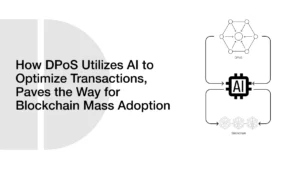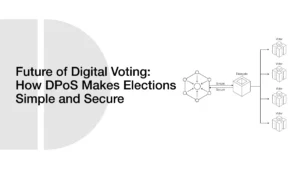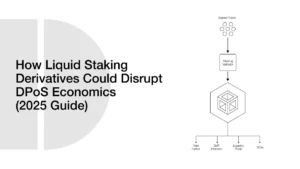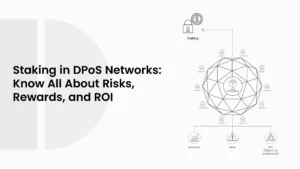Slashing Vs. Soft Penalties: Are Dpos Punishment Mechanisms Effective Compared to Traditional PoS?
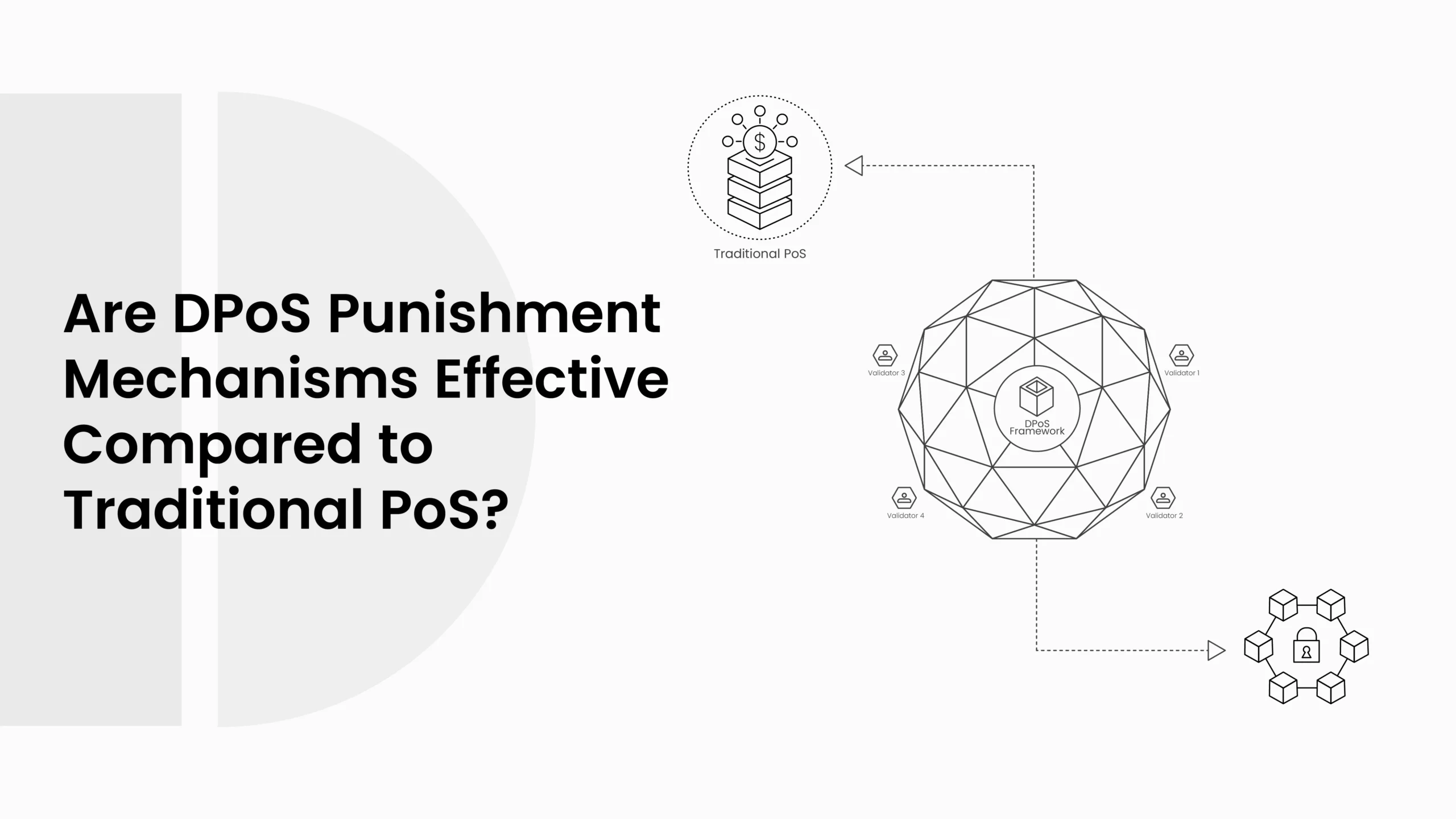
When people talk about blockchain, they often use hard words and complex math. But at the core, blockchain is just about trust. It is a way for strangers on the internet to agree on money and data without needing a bank or a company to check everything. To make this work, blockchains use something called a consensus system. That simply means rules for how people, or computers in this case, agree on what is true.
- Understanding Proof of Stake (PoS) and Slashing
- Understanding Delegated Proof of Stake (DPoS) and Soft Penalties
- Common DPoS Soft Penalties
- Why Punishments Exist in Blockchain Consensus
- Comparing Slashing vs. Soft Penalties
- Slashing vs. Soft Penalties Quick Comparison
- Are Soft Penalties Enough in DPoS?
- Academic Views on Penalty Mechanisms
- Future of Blockchain Penalty Mechanisms
- Possible Future Penalty Models
- Conclusion
- Frequently Asked Questions About Slashing vs. Soft Penalties:
- What is slashing in Proof of Stake?
- What are soft penalties in Delegated Proof of Stake?
- Which is safer, slashing or soft penalties?
- Can validators lose all their money in PoS?
- Glossary of Terms
Now, in these systems, there are always some people who may want to cheat. They can lie about transactions, try to double-spend, or simply go offline when they are supposed to help the network. If there is no punishment, then there is nothing stopping them from acting badly. This is why most blockchains add some type of penalty for bad behavior.
Two of the most popular systems are Proof of Stake (PoS) and Delegated Proof of Stake (DPoS). Both rely on staking tokens to show that someone is serious about helping the network. But the way they punish bad actors is different. In PoS, validators can face slashing, which means they lose a part of their locked tokens if they break the rules. In DPoS, instead of heavy slashing, validators often face soft penalties like losing rewards or getting voted out of their position.
This blog will look closely at the difference between slashing and soft penalties. The main question is simple. Are soft penalties in DPoS strong enough, or is something as harsh as slashing in PoS needed?
ALSO READ: DPoS and Rent-Seeking Behavior: How Validators Can Extract Value Without Adding Utility
Understanding Proof of Stake (PoS) and Slashing
To understand slashing, it’s important to know how Proof of Stake works. In Proof of Stake, validators are chosen to confirm transactions and add new blocks. Instead of solving puzzles like in Proof of Work, they lock up some of their tokens as a stake. The bigger the stake, the higher the chance of being chosen to make the next block. It is like buying lottery tickets, but the tickets are your tokens.
The idea is simple. If you lock up tokens, you will want to protect the system, because if the system fails, your tokens lose value. But to make sure validators are not only lazy or greedy, blockchains add punishments. The strongest of these punishments is slashing.
Slashing means that a part of the validator’s stake is destroyed or taken away. This happens if they do something very bad, like trying to approve the same transaction twice, or if they go offline too many times. The rules are set by each blockchain, and the penalty amount can be small or very large depending on the case.
For example, Ethereum, after its move to PoS, has strict slashing rules. If a validator double signs blocks, they can lose a big portion of their stake. This fear of losing real money makes validators very careful. Slashing acts like a strong lock on the system, because nobody wants to risk losing thousands or even millions of dollars.
But slashing also has some problems. Small validators, who may run nodes from their homes, sometimes fear joining because even a mistake or a technical bug could cause a slash. This makes PoS systems sometimes more controlled by bigger players who can manage risk better.
| Blockchain | Slashing % | Reason for Slashing | Extra Penalties |
| Ethereum | Up to 100% in extreme cases | Double signing, long downtime | Forced exit from validator set |
| Cosmos | 5% to 100% depending on issue | Double signing, downtime | Jailed from validating |
| Polkadot | 0.1% to 100% based on severity | Misbehavior, equivocation | Can lose nomination votes |
| Tezos | Small % of stake | Double signing only | Reputation loss, ban from future roles |
This table shows how serious PoS chains take the idea of slashing. It is not just about losing rewards. Validators can lose their entire investment if they attack the network.
From a game theory view, this is very strong. It makes cheating very expensive and keeps the system secure. But it also creates fear. Sometimes, honest validators may get punished because of software bugs or internet failures. Researchers have pointed out that this fear can reduce decentralization, as only professionals with strong infrastructure will want to participate (Yuan et al., 2025).
Slashing is therefore a double-edged sword. On the one hand, it protects the network very well. On the other hand, it may scare away smaller users and create a validator class of only big players.
Understanding Delegated Proof of Stake (DPoS) and Soft Penalties
Delegated Proof of Stake, or DPoS for short, is another way of running a blockchain. It works a little bit like Proof of Stake, but it adds a voting system on top. Instead of everyone who has tokens trying to validate, in DPoS, the token holders vote for a smaller group of people called delegates or witnesses. These delegates are the ones who produce blocks and keep the chain moving.
This makes DPoS much faster than normal PoS because only a few trusted delegates are working at one time. It is kind of like a company board, where shareholders vote for directors, and those directors make decisions on behalf of everyone.
Now, the big difference comes with punishment. In PoS, if a validator does something wrong, slashing can take away part or all of their stake. In DPoS, the system usually avoids heavy slashing. Instead, it uses what people call soft penalties.
Soft penalties can be things like losing block rewards if you miss your turn, or getting voted out by the community if you act badly. Sometimes a delegate can be put on a “blacklist” and not chosen again. But usually, there is no big money loss like slashing.
The logic is that delegates are already trusted by voters, so the main punishment should be losing that trust. This is more of a social penalty than a financial one. But the question many people ask is, is that enough to stop someone from cheating?
Let’s look at how some real DPoS chains use soft penalties.
ALSO READ: Is DPoS Ready for AI-Generated Smart Contracts and Autonomous DAOs?
Common DPoS Soft Penalties
| Blockchain | Soft Penalty Type | Trigger Event | Strength |
| EOS | Loss of rewards, risk of being voted out | Missed blocks, downtime | Medium |
| TRON | Temporary suspension | Downtime, bad performance | Medium |
| Steem | Reputation loss, removal by voters | Misbehavior, censorship | Medium-High |
| Lisk | No direct slashing, only missed rewards | Downtime, errors | Low |
Most DPoS systems don’t take tokens away directly. Instead, they punish by removing the benefits of being a delegate. That could mean losing future income or even being replaced by another candidate.
This makes DPoS more friendly for small players who want to join without fearing big money loss. But it also means the punishment may not be strong enough for very rich or powerful delegates. If they have already earned a lot, they may not care much about losing some rewards for a while.
Some researchers suggest that DPoS needs stronger hybrid models. For example, combining soft penalties with small slashing could create a better balance. But at the moment, DPoS still mainly relies on trust and votes to punish.
Why Punishments Exist in Blockchain Consensus
Blockchains are open systems. Anyone can join, and not everyone has good intentions. If validators or delegates could do whatever they want with no punishment, the system would break down very fast.
Punishments are there to make sure everyone plays fair. The most common problems punishments try to stop are:
- Double signing: This is when a validator tries to approve two different blocks at the same time. It could cause confusion in the chain.
- Downtime: When someone is offline too much, it makes the system weaker because fewer people are helping.
- Malicious actions: Sometimes, validators may try to cheat to get extra rewards or even attack the network.
Without punishments, bad behavior would spread. Imagine if one validator could double sign and get away with it. Others might copy the trick, and soon nobody would trust the chain anymore. That is why punishments, whether slashing or soft penalties, act as a warning system.
They also protect the small users. Most people who use a blockchain do not run a validator. They just want to use the system to send money, NFTs, or other assets. If validators were free to cheat, then all the regular users would be at risk. Punishments keep the system stable so small users can feel safe.
Another big reason is economic incentives. In game theory, you need both rewards and penalties to make people act honestly. Rewards alone are not enough, because people might try to trick the system to get bigger rewards. Penalties balance the system. They show that cheating is more costly than just playing fair (Yuan et al., 2025).
So in the end, punishments are like the rules of the road. You get rewarded with safe travel if you follow them, but if you break them, there has to be a cost. The difference between PoS and DPoS is simply how big that cost is.
Comparing Slashing vs. Soft Penalties
It is time to compare them side by side. Slashing in PoS is a hard punishment. It is scary because people can lose a big part of their money if they do something wrong. In DPoS, soft penalties are much lighter. They are more like warnings or losing future income, but not losing the money you already staked.
This makes a big difference in how validators behave. In PoS, the fear of slashing keeps everyone alert. A validator has to make sure their system is always running, always online, and always honest. Even one mistake can hurt them badly. In DPoS, the penalty is softer. A delegate might lose their position, but they don’t lose tokens directly. They can always try again later, or get votes back if they still have community trust.
The main question is which one is more effective. Slashing is strong, but maybe too strong. Small validators sometimes avoid PoS networks because of the risk. Soft penalties are more user-friendly, but sometimes they don’t scare the big players enough. In some DPoS chains, a few rich delegates control most of the votes. Even if they act badly, they don’t always face enough punishment because they can buy back trust or keep influence.
ALSO READ: How Generative AI Could Simplify DPoS Codebase Maintenance
So, there is a trade-off. Slashing is good for strong security, but it risks centralizing the network. Soft penalties are good for openness and participation, but they can be too weak if people do not take them seriously.
Slashing vs. Soft Penalties Quick Comparison
| Feature | Slashing (PoS) | Soft Penalties (DPoS) |
| Punishment | Tokens taken away | Loss of rewards or votes |
| Fear Factor | High (can lose money) | Medium (can lose power) |
| Effect on Small Validators | Risky, can lose funds on mistakes | Safer, no big money loss |
| Effect on Big Validators | Keeps them careful | Sometimes not strong enough |
| Decentralization Impact | Can push out small validators | Can allow big players to stay in control |
This table makes it easier to see the contrast. Slashing acts like a hammer. Soft penalties act more like a soft push. Both try to keep validators honest, but they use very different methods.
Some studies have said that using only one side may not be the best. A hybrid model could work better, where small mistakes lead to soft penalties and bigger crimes lead to slashing. This could balance fairness with strong security.
Are Soft Penalties Enough in DPoS?
This is one of the biggest debates in blockchain. Many people say soft penalties are not enough. They argue that if a delegate is rich or has strong political influence, then soft penalties don’t really hurt them. They might lose rewards for a while, but they can still come back. If voters are lazy or manipulated, then even bad delegates can stay in power.
On the other hand, defenders of DPoS say soft penalties are fairer. They believe that the community should decide if someone is punished or replaced. They say slashing is too dangerous because even honest people can lose their money if a bug or hack happens. In fact, some PoS validators have been slashed unfairly because of mistakes outside their control.
So, the real answer may be somewhere in between. Soft penalties do keep the system more open. More people are willing to join because they don’t risk huge financial losses. But soft penalties alone may not be strong enough when the stakes are very high. For example, if a DPoS delegate controls millions of dollars’ worth of transactions, a soft penalty like losing some rewards may not be enough to stop them from cheating.
Real examples also show the weakness. In some DPoS chains, like EOS, there have been cases where block producers were accused of collusion, but they stayed in power because they had enough voting support. The soft penalty system did not remove them. This shows that while the idea of voting them out sounds good, in practice it is not always effective.
Researchers such as Hu et al. (2021) have suggested that DPoS needs stronger mix mechanisms. Maybe small slashing, reputation systems, or new AI-based trust scores could make penalties more effective. This way, soft penalties can remain, but with stronger teeth when needed.
So, are soft penalties enough? For small and friendly systems, maybe yes. But for large blockchains with billions in value, probably no. Without stronger penalties, there is always a risk that power concentrates in a few hands, and they play the system without facing real loss.
Academic Views on Penalty Mechanisms
Researchers have studied both slashing and soft penalties for many years. In academic work, punishment in consensus is often seen as a way to align incentives. Incentives are like the rules of a game. If you want people to play fair, you must make honesty more rewarding and cheating very costly.
In PoS research, slashing is often praised for being strong. It makes validators careful and reduces the chance of attacks. Papers on Ethereum’s PoS show that double signing or long downtime can cost validators their full stake, which makes them very cautious (Grandjean et al., 2023). This is good for system safety, but it also creates fear. Some researchers point out that it may scare small validators away, because even an internet problem could cause big loss.
On the other side, DPoS with soft penalties is described as more user-friendly. It lowers barriers and makes it easier for people to join. Studies on DPoS improvements suggest that soft penalties are effective if combined with community voting and monitoring. But many academics also agree that relying only on voters can be risky. If voters are not active or if they are bribed, then soft penalties may fail to punish truly bad actors.
One article in the Information Journal even compared hybrid systems. It showed that a mix of punishments, like smaller slashing plus soft penalties, could improve efficiency and trust in consortium blockchains. So, the research world seems to agree on one thing. Neither slashing alone nor soft penalties alone are perfect. The best solution is likely somewhere in the middle.
Future of Blockchain Penalty Mechanisms
Looking ahead, the debate about slashing vs. soft penalties will likely continue. Blockchains are becoming bigger, and the value locked in them is huge. This means punishment systems must also become stronger and smarter.
One possible future is hybrid penalties. Imagine a system where small mistakes, like being offline for a short time, only get soft penalties such as missed rewards. But bigger crimes, like double signing blocks, trigger real slashing. This way, honest people don’t live in fear of losing money for small errors, but attackers still face serious costs.
Another future idea is using reputation systems. Instead of just money penalties, validators could build digital trust scores. If they act badly, their reputation drops, and they cannot get chosen for future roles. Some blockchains are already testing this, mixing penalties with reputation to make systems more balanced.
Artificial intelligence may also play a role. AI can help detect suspicious validator actions before they cause harm. If AI tools can find patterns of cheating, then penalties can be applied faster and more fairly. Researchers have suggested combining DPoS with AI-based monitoring to create more accurate punishments (Yuan et al., 2025).
Regulation may also impact the future. As governments look closer at blockchain, they may demand stronger penalties to protect users. Slashing might be seen as too risky for consumers, so softer but smarter penalties could be favored. This balance will depend on how blockchains grow in finance, supply chain, and even healthcare.
Possible Future Penalty Models
| Model | Description | Pros | Cons |
| Hybrid System | Mix of soft penalties and small slashing | Balanced, fair, flexible | Harder to design rules |
| Reputation-Based | Validators judged on long-term behavior | Encourages trust, social pressure | Risk of fake scores or manipulation |
| AI-Assisted | AI detects cheating early | Fast, smart detection | Needs reliable data, risk of errors |
| Regulatory-Driven | Governments enforce penalty rules | Protects users, standardization | May reduce decentralization |
This table shows that the future is not one single path. Different blockchains may choose different models. Some may stay with strong slashing like Ethereum. Others may stay with soft penalties like EOS. But many will likely move to hybrid or reputation-based models to find balance.
ALSO READ: How Green Bonds Could Be Managed Using DPoS Chains
In short, penalties will evolve as blockchains evolve. What works for a small chain may not work for a global one. The key is keeping security strong, while not scaring honest people from joining.
Conclusion
The debate between slashing in PoS and soft penalties in Delegated Proof of Stake (DPoS) is not just technical. It goes to the heart of how blockchains balance safety and openness. Slashing is strict. It makes validators very careful, but it also creates fear. Soft penalties are lighter. They make participation easier, but sometimes they do not stop bad behavior enough.
Earlier, it was seen how in PoS networks like Ethereum, slashing plays a strong role in keeping the system safe. At the same time, it can push out smaller validators who cannot risk losing big money. In DPoS networks like EOS and TRON, soft penalties keep things more open. But history shows that powerful delegates can sometimes survive even when they misbehave, because the punishment is not strong enough.
Academics agree that the answer may not be black or white. Hybrid systems, mixing slashing and soft penalties, could bring balance. Reputation-based systems and AI monitoring may also become part of the future. These ideas show that blockchain is not done evolving. Penalties will need to change as the value and size of blockchains keep growing.
So, are DPoS soft penalties effective compared to PoS slashing? The answer is yes, but only in certain ways. They are effective for fairness and inclusivity, but they are weaker in strong security. For global systems handling billions of dollars, stronger punishments may be needed. The future is likely not only slashing or only soft penalties, but a smart mix that uses both.
Frequently Asked Questions About Slashing vs. Soft Penalties:
What is slashing in Proof of Stake?
Slashing is when a validator in a PoS system loses part of their staked tokens as punishment. It usually happens if they try to cheat, double sign, or go offline for too long.
What are soft penalties in Delegated Proof of Stake?
Soft penalties are lighter punishments used in DPoS. Instead of taking away money, the system reduces rewards, takes away voting power, or lets the community vote out bad delegates.
Which is safer, slashing or soft penalties?
Slashing is safer for the system because it strongly discourages cheating. But it is also harsher for validators. Soft penalties are easier for users, but sometimes not strong enough against big delegates.
Can validators lose all their money in PoS?
Yes, in some PoS networks validators can lose a large part or even all of their stake if they act very badly. This is why slashing is seen as a very strong punishment.
Glossary of Terms
Blockchain – A digital ledger where transactions are recorded in blocks linked together in a chain.
Consensus Mechanism – The method a blockchain uses to agree on which transactions are valid.
Proof of Stake (PoS) – A system where validators lock up tokens (stake) to earn the right to validate blocks.
Slashing – A punishment in PoS where part of a validator’s stake is taken away for bad actions.
Delegated Proof of Stake (DPoS) – A system where token holders vote for delegates who validate blocks.
Soft Penalties – Lighter punishments in DPoS, such as losing rewards, votes, or reputation, but not losing tokens.
Validator – A node that checks and approves blockchain transactions.
Delegate – In DPoS, a validator chosen by token holder votes.
Double Signing – When a validator signs two conflicting blocks, which can harm the chain.
Hybrid Penalties – A mix of slashing and soft penalties to balance fairness and security.

